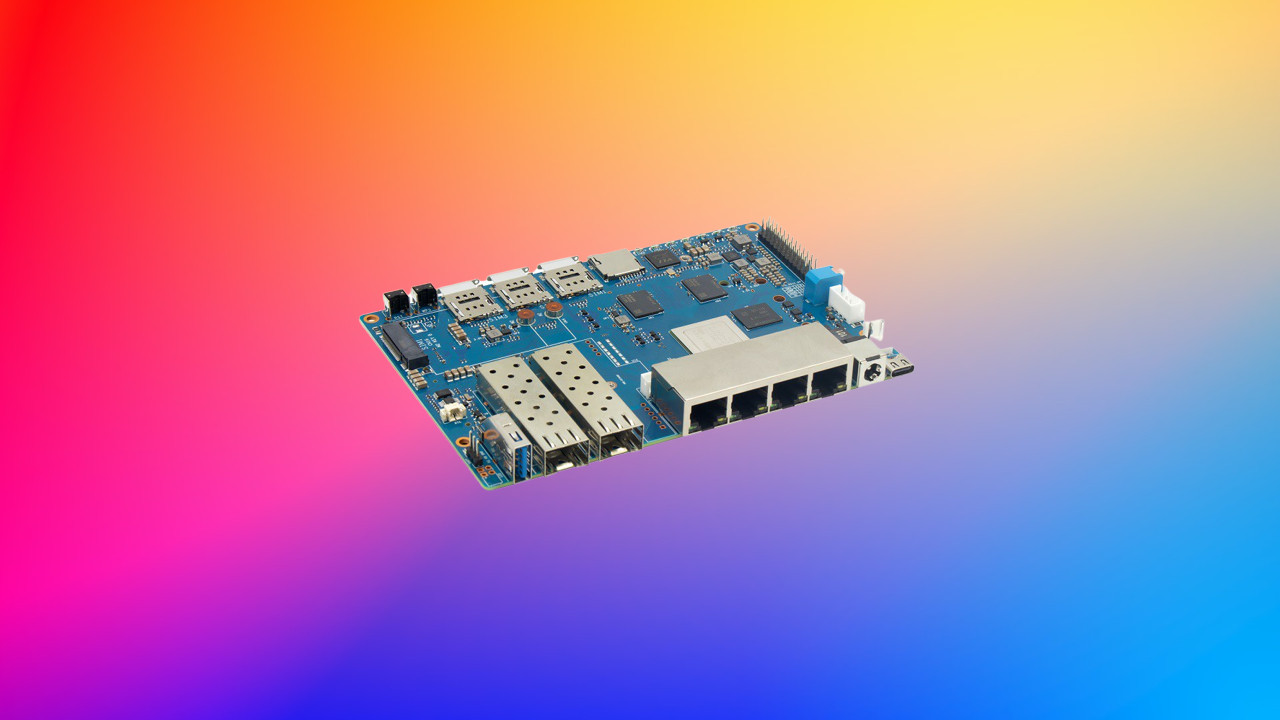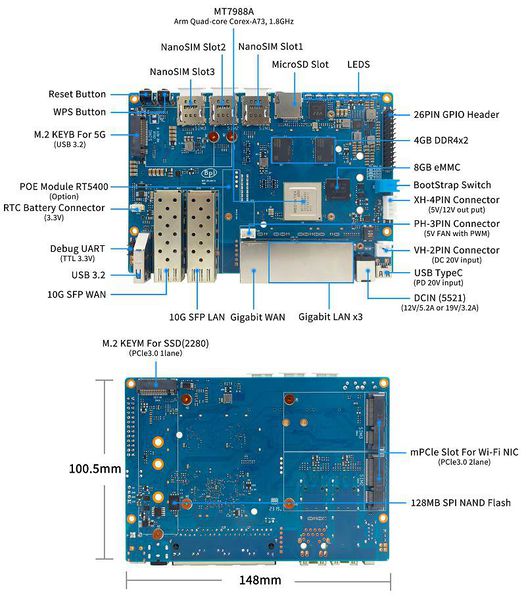
Banana Pi has announced a new router board, the Banana Pi BPI-R4, based on the MediaTek MT7988A SoC featuring a quad-core Arm CPU. This board is not just another Raspberry Pi alternative, rather it is made to be an appliance for home networking and automation.
Banana Pi BPI-R4 with MediaTek MT7988A,support Wifi7 and PoE ,2 10G SFP ,also support 4G/5G functionhttps://t.co/xIGPnVEH2x#bananapi #MediaTek #MT7988 #Filogic880 #Router #OpenWRT #gateway pic.twitter.com/s50gcCzXL2June 21, 2023
The form factor of the Banana Pi BPI-R4 is more network appliance than single board computer. The plethora of Ethernet ports ( 2 x10Gbe and 4 x Gigabit) make this an interesting choice for those wishing to build their own router. The addition of optional 4G/5G and Wi-Fi 7 NICs means that this board could provide all the networking your home or office could need. If home automation, security or network storage is more your thing, then the BPI-R4 has plenty of options. The USB 3.2 port can be used with webcams and the GPIO with sensors to provide inputs for your security system and automation. PIR sensors can trigger your lights, temperature sensors can monitor your home, and cameras can be used to manage zones in your home. The onboard NVMe slot provides a means to build your own NAS system but you'll either have to buy a large drive, or make use of the USB 3.2 port to provide additional storage.

The MediaTek MT7988 SoC is designed for high performance networking, be they wired or wireless. This means it can handle all of your Ethernet connections, Wi-Fi 7, 4G and 5G. There are three nano SIM slots, offering redundancy across multiple carriers. An attractive proposition for building our own appliances.
The elephant in the room is the GPIO. With just 26 pins, we are reduced to the same number of pins as the original Raspberry Pi in 2012. This means that using the best HATs is most likely out of the question. You could hack something together, but the odds are not in your favor. We can't see a pinout but the specifications mention UART, I2C, SPI, PWM and I2S. Standard digital IO will be a given. How we interact with the GPIO pins is unclear, most likely there will be a means via Python, and the Linux terminal.
Software support is a little nebulous right now but it seems that OpenWRT and Debian will be the preferred means to build your appliance.
How much will it cost and when will it be released? Right now we're in the dark but it can't be too far off now.







